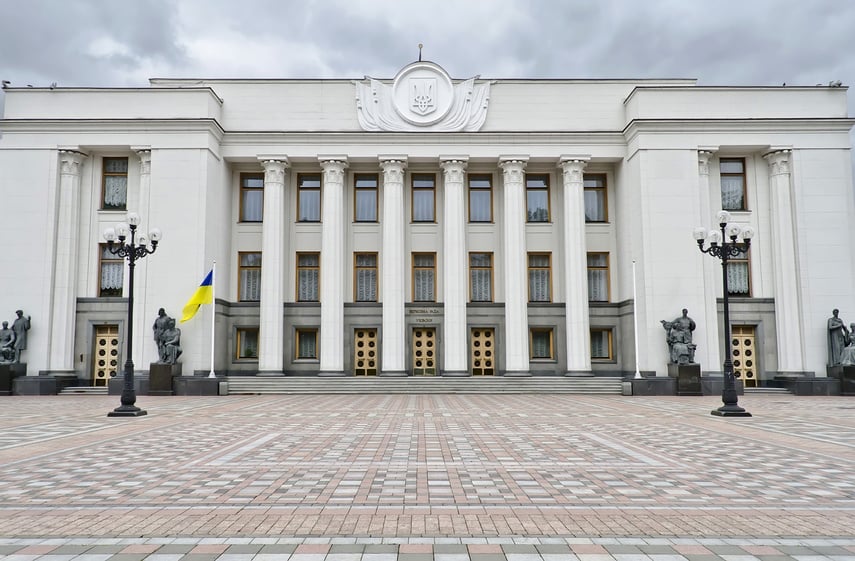On 27 September 2024, the Law of Ukraine “On Amendments to the Labor Code of Ukraine on Establishing Additional Grounds for Termination of Employment Agreements at the Initiative of the Employer and Certain Other Issues” No. 3768-IX dated 4 June 2024 (with certain exceptions) will come into force. The Law, among other things, details the rules applicable to internal labor regulations and establishes new termination grounds.
The Cabinet of Ministers of Ukraine issued Resolution No. 650 on “Some Issues with Reservation of Persons Liable for Military Service during Martial Law”, dated 5 June 2024 (“Resolution”), which came into force on 8 June 2024. The Resolution provides for an opportunity, in addition to the existing paper-based procedure, to reserve employees of certain companies online through the Unified State Web Portal of Electronic Services (“Diia Portal”).
The Cabinet of Ministers of Ukraine issued Resolution No. 650 on “Some Issues with Reservation of Persons Liable for Military Service during Martial Law”, dated 5 June 2024 (“Resolution”), which came into force on 8 June 2024. The Resolution provides for an opportunity, in addition to the existing paper-based procedure, to reserve employees of certain companies online through the Unified State Web Portal of Electronic Services.
On 16 May 2024, the Cabinet of Ministers of Ukraine approved the Procedure for Conscription of Citizens for Military Service During Mobilization and amended the Procedure for Organization and Maintenance of Military Registration (“Amendments”). The Amendments, among other things, detail employers’ existing obligations during mobilization and establish the new ones.
On 19 May 2024, the Law of Ukraine “On Amendments to the Code of Ukraine on Administrative Offenses to Improve Liability for Violation of Military Registration Rules and Legislation on Defense, Mobilization Preparation and Mobilization” No. 3696-IX dated 9 May 2024 came into force. The Law increases liability for violations of the military registration rules and legislation on defense, mobilization preparation, and mobilization. In particular, it significantly increases the amount of administrative fines. The Law also extends the timeframe for imposing administrative fines and changes the procedure for their imposition.
On 15 May 2024, Law of Ukraine No. 3677-IX “On Amendments to the Labor Code of Ukraine on Labor Relations in the Course of Transfer of a Business Entity” dated 25 April 2024 came into force, regulating succession in labor relations in the event of a change of company ownership, among others.
On 18 May 2024 (with certain exceptions), Law of Ukraine No. 3633-IX “On Amendments to Certain Legislative Acts of Ukraine on Certain Issues of Military Service, Mobilization and Military Registration” dated 11 April 2024 will come into force. This Law, among others, imposes certain new obligations for employers and their employees who are subject to mobilization.
In Ukraine, employee job titles should be named exclusively in accordance with the national classifier DK 003:2010 “Classifier of Professions”. The Order of the Ministry of Economy of Ukraine No. 1410 dated 16 January 2024 approved amendments to this Classifier, which complement the list of professions in accordance with the current demands of employers operating in international markets.
On 11 December 2022, Law No. 2759-IX of Ukraine “On Amendments to Certain Legislative Acts of Ukraine on Preventing and Countering Mobbing (Hostile Environment)” dated 16 November 2022 came into effect. Among other things, the Law: (i) provides the definition of “mobbing”; (ii) introduces new grounds for dismissal of employees in connection with mobbing; and (iii) guarantees compensation of moral damages for employees who have suffered from mobbing.
On 6 November 2022, Law No. 2682-IX of Ukraine “On Amendments to Certain Laws of Ukraine on the Protection of Social, Labor and Other Rights of Individuals, Including During Martial Law, and Simplification of Accounting of Jobs for Disabled Persons” dated 18 October 2022 came into effect. It aims to improve the conditions for the protection of individuals’ rights to work and social protection.








